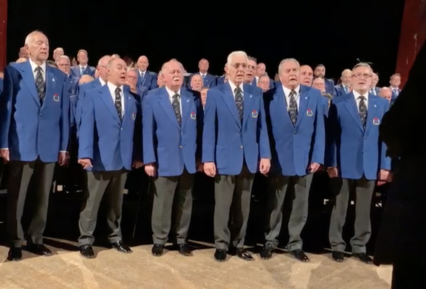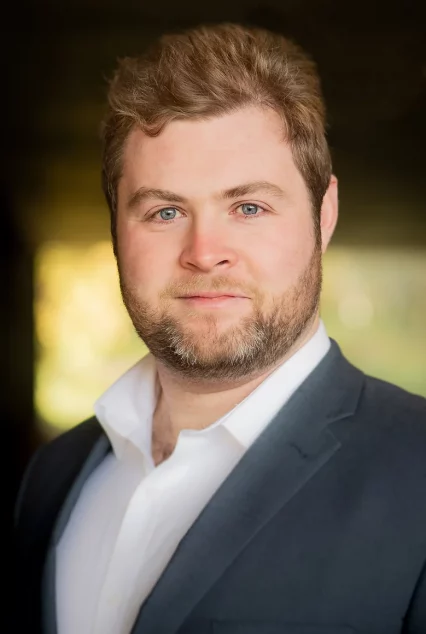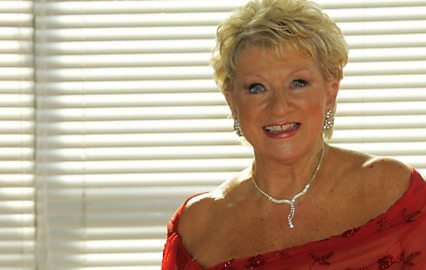Cath Barton discusses the 2018 Dunraven Welsh Young Singer competition held at the Royal Welsh College of Music and Drama with support from the Maesteg Gleemen Male Voice Choir.
For aspiring professional singers, competitions are an inescapable part of the mix. For many young Welsh singers the round of competitions starts at an early age through the eisteddfodau network. A major goal for many is to make it to and through the Welsh Singers Competition to represent Wales in the prestigious biennial BBC Cardiff Singer of the World Competition, where the home country has a guaranteed place in the final group of about 20 singers.
A possible stepping stone on the way is to reach the final of the Dunraven Welsh Young Singer Competition, which added a 19-30 years category in 2012. This competition, originally established for younger singers – 11-14 and 15-18 years – has been held in Maesteg annually since 2003, thanks to the philanthropy of the president of the Maesteg Gleemen Male Voice Choir, David Brace OBE, a former coal minor and now a successful businessman with financial interests under the Dunraven name.

This year, for the first time, the final of the Dunraven Welsh Young Singer was held at the Royal Welsh College of Music and Drama, giving singers the chance to sing on the stage of the Dora Stoutzker recital hall. Popular Welsh broadcaster Beverley Humphreys was the able compère and the Maesteg Gleemen Male Voice Choir provided support and entertainment while the jury were making their decisions.
This choir was founded in 1958; most of its members are now elderly and have probably sung in it for many years. Many of them, like their president, will have been coal miners in their younger years. The last pit in the Maesteg area closed in 1985, and there are no longer significant employment opportunities there; people have to travel to Bridgend, Port Talbot or even to Cardiff for work. The raison d’être of the male voice choirs has gone and these men will not be replaced by their sons or grandsons in the choir. But through their support for this annual competition they are nonetheless enabling singing to survive in the valleys of Wales, in different ways.
Two of the young competitors in the junior categories have developed their love of singing through the opportunities offered by the Aloud charity; both Owen Parsons, a finalist in the 11-14 years category, and Jack Cox, the winner of the 15-18 category, joined Only Kids Aloud at the age of nine. Now members of Only Boys Aloud choirs, they are clearly both set on a road where, whether or not it becomes their profession, singing will remain an important part of their lives.
Conductor Anthony Gabriele, one of the panel of three adjudicators, announced Jack Cox as the winner of his category because of the natural beauty and ease of his singing. His choice of repertoire was, I thought, extremely well-judged, and in Vaughan Williams’ Linden Lea in particular
he showed exemplary breath control and legato singing, as well as obvious enjoyment. Manon Ogwen Parry showed herself to be at 18 already an impressive performer, especially in Can’t Help Loving Dat Man from the musical Showboat. She and Lucy Vinen were worthy finalists.
Presenting the adjudication for the 11-14 category, baritone Gary Griffiths, himself a past competitor in Cardiff Singer of the World, applauded the three finalists – Eve Carey, Owen Parsons and Rhianna Hogg – and spoke of the difficulty of making judgements about the singing of young people who are ‘not even at the foothills of proper training’; the panel recognised a quality in the singer they chose as winner, Rhianna Hogg. I thought her singing was particularly affecting in Ivor Novello’s I Can Give You the Starlight. It is crucial that young singers are given good advice about the songs they sing. Owen Parsons was unfortunately let down by the choice of Vaughan Williams’ Silent Noon, a song which requires an emotional maturity that was beyond him.
As the adjudications were not given until all the competitors had sung, the younger finalists had to sit through the 19-30 section, which, while possibly frustrating for them, was surely also a good opportunity to listen to and observe more experienced performers. All five finalists in this section presented interesting programmes, showing off the range of what they could do and each singing in at least three languages.
While official accompanists – here the very experienced Sian Davies and Ryan Wood – did a respectable job, they do not have the rehearsal time to develop the sort of rapport with the singers which is part of an established partnership. Mezzo Sophie Dicks had brought her own pianist, Alex Jenkins, who served her well in a flamboyant programme of Copland, Granados and Rossini. I thought it was a pity though that she allowed Meirion Williams’ Gwynfyd/Paradise to get caught up in the drama, so that the opportunity it provided for reflective contrast was lost.
Soprano Elen Lloyd Roberts presented a programme – including her own spoken introductions, which I always welcome from a singer – full of contrast, starting with a dramatic aria from Handel’s Alcina and ending with Gareth Glyn’s playfully affecting 2011 song Bwydo’r Adar/Feeding the Birds. She demonstrated agility, control and musical intelligence in this short programme. I was charmed by her singing.

Tenor Andrew Henley is a singer I remember seeing as Britten’s eponymous Albert Herring at the RWCMD in 2015. Now studying at the National Opera Studio he is a sweet-toned and confident performer, if restless on the stage. His The Last Rose of Summer was delightful and he sang Donizetti and Strauss with fervour, but I longed for a bit of quiet and still singing in the mix.
The other soprano in the final, Jessica Cale, gave an accomplished and striking performance, delivering Purcell with flair, Strauss with beauty and doing that most difficult thing, singing deliberately out of tune, in her show-stopping finale, Flanders and Swann’s A Word On My Ear. For this to work well a strong collaboration between singer and pianist is essential, and Jessica Cale had this with her own pianist Ella O’Neill.
Counter-tenor Kieron-Connor Valentine opened his programme with Welcome Wanderer… I Know a Bank, sung by Puck in Britten’s opera A Midsummer Night’s Dream. I was mesmerised by his singing of this, engrossed in a way that I was not with any other song during the evening. He followed this with a virtuoso aria from Mozart’s early opera Mitridate, re di Ponto, demonstrating technical mastery of his material though, for me, less emotional connection. In Rhys Jones’ Cilfan y Coed/Shade in the Trees I was impressed by his vocal control, particular in the high ending.

The third member of the adjudication panel, David Jackson, is the Artistic Director of the BBC Cardiff Singer of the World Competition. At the end of the evening he announced Kieron-Connor Valentine as the panel’s choice as winner of the 19-30 category and the title Dunraven Welsh Young Singer 2018. This young singer is, at the age of 21, already demonstrating how much he has to offer in the profession. Two years ago he was a finalist in the Welsh Singers Competition (now the Welsh Singers Showcase). I would not be surprised if we see him there again in 2020, vying once more to be the singer representing Wales in Cardiff Singer of the World.
The adjudicators of the Dunraven competition and compère Beverley Humphreys were keen to stress that all eleven of these singers were winners. That they are all part of the future of singing in Wales is certainly true.
Dunraven Welsh Young Singer 2018
Maesteg Gleemen Male Voice Choir
Beverley Humphreys, compere
Dora Stoutzker Hall, Royal Welsh College of Music and Drama, Cardiff
14 April 2018
Header photo: Presenter Beverley Humphreys, courtesy BBC Radio Wales
Cath Barton’s novella The Plankton Collector is due to be published in September 2018 by New Welsh Review under their Rarebyte imprint. She has been awarded a place on the 2018 Literature Wales Mentoring Scheme, to work on a collection of short stories inspired by the work of the sixteenth century Dutch artist Hieronymus Bosch.
You might also like…
Cath Barton attended a performance by the National Youth Training Choir of the National Youth Choir of Great Britain (NYCGB) at Dora Stoutzker Hall, featuring the talents of 11-18 year old singers.



 Enjoyed this article? Support our writers directly by buying them a coffee and clicking this link.
Enjoyed this article? Support our writers directly by buying them a coffee and clicking this link.







